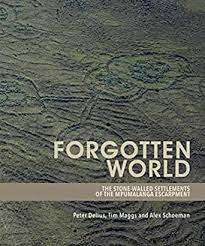
`FORGOTTEN WORLD-THE STONE-WALLED SETTLEMENTS OF THE MPUMALANGA ESCARPMENT` BY PETER DELIUS ET AL
Shipping
Free shipping is available from Collectible Treasures for all orders above R15,000.00, using one of our trusted couriers.
Check my rate
Check my rate
Free collection is available from various lockers and counter collection points across South Africa, for all orders above R15,000.00 from Collectible Treasures
View locations
View locations
The seller has indicated that they will usually have this item
ready to ship within 1 business day.
Shipping time depends on your delivery address.
The most accurate delivery time will be calculated at checkout,
but in general, the following shipping times apply:
Standard Delivery
| Main centres: | 1-3 business days |
| Regional areas: | 3-4 business days |
| Remote areas: | 3-5 business days |
Buyer protection
Get it now, pay later
